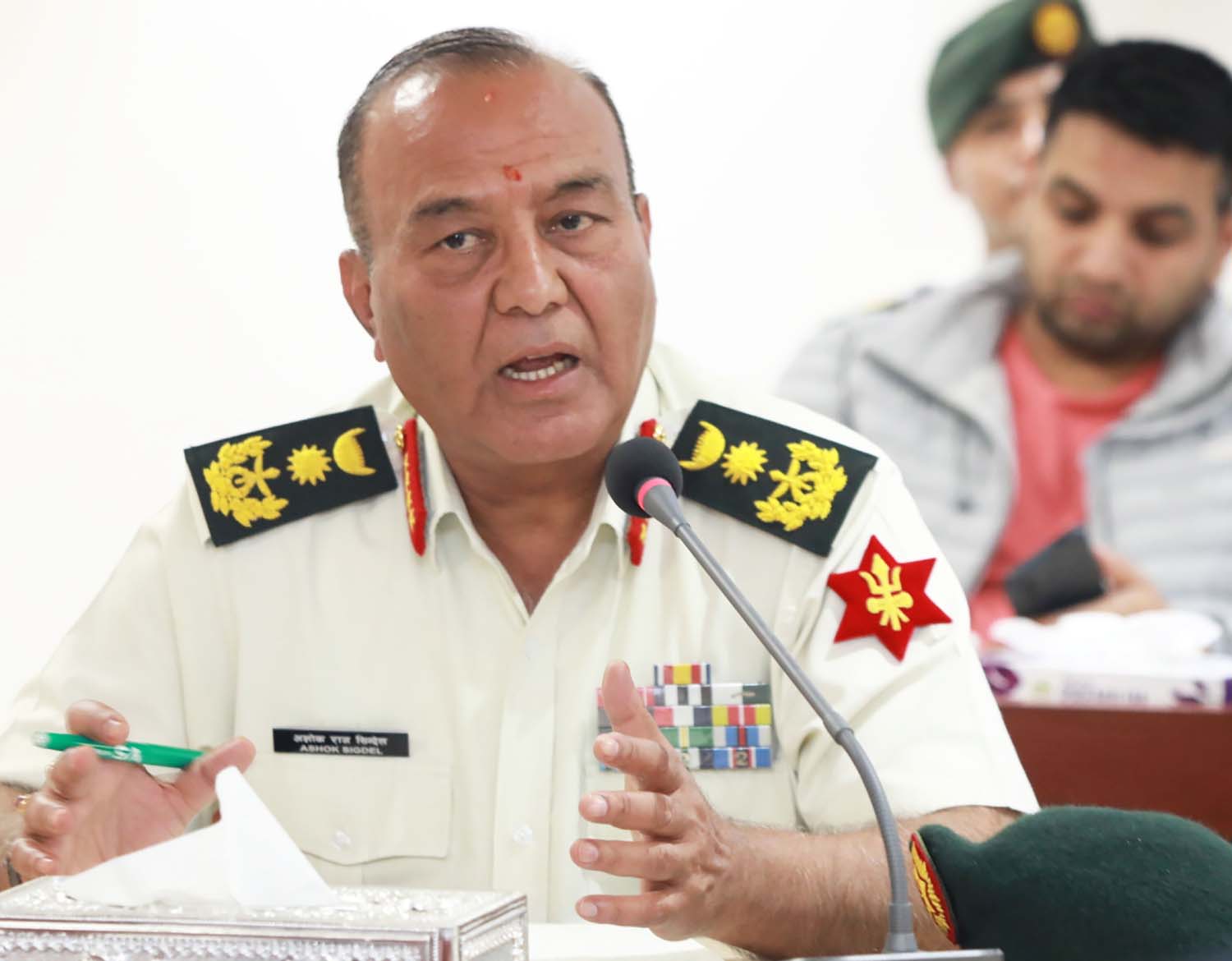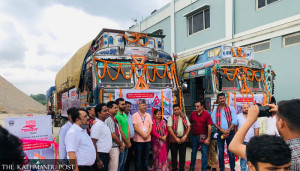National
Nepal, UN mull pulling peacekeepers out of Lebanon
UN peacekeepers are still in danger from Israel’s fight with Hezbollah and are living in bunkers, says Nepal army chief.
Anil Giri
The Nepal Army said on Tuesday that it is mulling an emergency rescue plan of Nepali peacekeepers from Lebanon if the ongoing war between Israel and Hezbollah escalates. As many as 877 Nepali peacekeepers are currently deployed in Lebanon as part of the United Nation peacekeeping mission.
“If necessary, we are considering undertaking an emergency rescue plan to bring back Nepali peacekeepers from Lebanon,” said Ashokraj Sigdel, Chief of the Nepal Army in a Tuesday press conference at the Ministry of Defense.
“If a big clash breaks out, the United Nations is preparing an emergency rescue plan for peacekeepers. We are also working on a plan to either relocate the Nepali peacekeepers or bring them back to Nepal,” he said.
Until last week, Nepali peacekeepers were facing shortage of food and water. That is no longer the case. But they are still in the danger zone and living in bunkers, according to government officials.
Nepal has been sending peacekeepers to the conflict-torn Middle Eastern country since 1958 under the United Nations Interim Force in Lebanon (UNIFIL).
Nepal is the top troop-contributing nation to the United Nations peacekeeping missions. Nepal started participating in the United Nations peacekeeping efforts in 1958 when it sent five observers to the United Nations Observer Group in Lebanon (UNOGIL).
Nepal Army’s Purano Gorakh Battalion was the first Nepali contingent sent to the United Nations Emergency Force (UNEF–II), Egypt in 1974, according to the army.
The army chief also described the current situation of Nepali peacekeepers in UNIFIL.
“They are in a really difficult situation,” said Sigdel. “But they are safe, secure, and living in bunkers. If the security situation worsens to level-III, then the peacekeepers have to remain hidden inside the bunker.”
The peacekeepers are sometimes in level II, and sometimes in level III, according to him.
“If the firing intensifies, then the situation drops to level III, but when it stabilises, it comes down to level II, which is relatively safer.”
The UN has kept them fully secured and protected, said the army chief, adding that “there is no immediate threat requiring them to be brought back.”
Despite the ongoing fighting between Israeli forces and Hezbollah militants, no side has of late targeted the peacekeepers, according to Sigdel.
“I am in contact with the peacekeepers, and we are also communicating with the UN headquarters.”
“We are in touch with the parties to the conflict and coordinating with them so there is a little chance of the peacekeepers being attacked or facing trouble,” said Sigdel.

A few days ago, however, four Bangladeshi and Indonesian peacekeepers were injured when Israeli troops forced their way into a peacekeepers’ base in south Lebanon and opened fire. UNIFIL condemned the breach.
Nepal’s Ministry of Foreign Affairs denounced the attack and urged all parties involved in the conflict to ensure the safety and security of UN personnel. Nepal joined the condemnation along with 33 other UNIFIL-contributing countries.
“Nepal strongly condemns recent attacks on the UNIFIL peacekeepers and urges parties of the conflict to guarantee their safety and security,” said the foreign ministry in a statement on October 14.
“Such actions must stop immediately and should be adequately investigated,” read the ministry's statement.
In a joint statement, Nepal reaffirmed its commitment to supporting UNIFIL’s mission, which plays a crucial role in maintaining peace and stability in South Lebanon and the wider Middle East.
The statement emphasised the importance of the mission, particularly given escalating tensions in the region.
The signatories called for respect for international law, including the United Nations Charter and relevant UN Security Council resolutions, and urged conflicting parties to guarantee the safety of peacekeepers to help them fulfil their mandate.
According to a Nepali diplomat in New York, the UN Secretary General António Guterres held a meeting last week with ambassadors from countries contributing to UNIFIL and discussed the situation and the UN response to the crisis.
Besides Guterres, the UN Security Council also separately condemned the attack on UN peacekeepers in Lebanon.
“The safety of UN personnel and property must be guaranteed,” Guterres wrote on social media site X on October 14. “The inviolability of UN premises must be respected at all times.”
Attacks against peacekeepers are in breach of international law and may constitute a war crime, he added.
The United Nations has also prepared a backup plan to rescue UN peacekeepers in the event the fight between Israeli Army and Hezbollah militants escalates, said the Nepali diplomat, adding that the UN has shared the plan with Nepal.




 19.12°C Kathmandu
19.12°C Kathmandu















